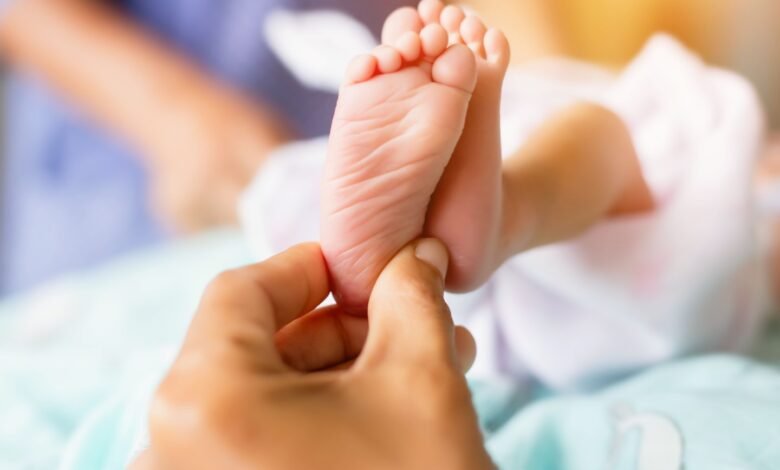Billions in Damages: The Growing Cost of UK Maternity Care Negligence

Every year, around 1,800 UK children are diagnosed with cerebral palsy. It’s estimated that at least 1 in every 12 of those diagnoses occurs because of negligence in maternity care settings, with lives permanently impacted by the knock-on effects of underfunded, understaffed NHS services. Now, birth injury solicitors at RWK Goodman say figures show that billions of pounds in NHS damages claims could have been avoided had recommendations from past reviews been followed by action.
For the last decade, formal reviews have repeatedly raised inadequate training and insufficient staffing levels as key issues affecting NHS maternity care. But rather than driving change, CQC figures show that past recommendations have failed to lead to better outcomes.
- 1 in 4 core NHS maternity services across the UK is currently rated as ‘inadequate’ or ‘requiring improvement’.
- Despite a government pledge to reduce brain injuries at birth by 50% between 2016 and 2025, the number of new NHS obstetric injury claims for cerebral palsy and brain damage was the same in 2022 as in 2016.
- At least 2,473 UK families have sought compensation for cerebral palsy and brain damage caused by maternity medical negligence since 2012.
Alongside the far-reaching consequences figures like these have for people’s lives and livelihoods, ultimately a failure to adequately invest in maternity services costs the system more in the long-term. NHS obstetrics damages payments for cerebral palsy and brain damage totalled more than £656 million in the financial year ending 2022 – and have sat at an average of around £460 million annually since 2010.
Read More: 5 Common Defenses in Car Accident Claims
Almost £5 billion has been needed to compensate those affected, but only £5 million in NHS investment has been dedicated to reducing brain injuries at birth.
“If more funding were dedicated to resolving persisting issues, the upfront cost of providing more staff, more training and ultimately more services would surely soon be negated by a reduction in the amount of compensation needing to be paid to victims of inadequate care.” A new report from RWK Goodman says.
“More importantly, long overdue improvements to maternity care would mean a reduction in the number of children born with avoidable brain damage – and a greater sense of trust and safety for new mothers putting their care in the hands of those services.”
Issues in NHS maternity care
The number of women and pregnant people who were always able to get staff help when they needed it during their labour dropped from 72% to 63% between 2019 and 2022, according to the latest CQC maternity survey. That means almost 40% of those going through labour experienced points where professional support was necessary, but unavailable. The number of mothers always able to get help in hospital after their birth, when they needed it, dropped from 62% to 57% in the same period.
Victoria Vallance, CQC’s Director of Secondary and Specialist Care, says:
“This reflects the increasing pressures on frontline staff as they continue in their efforts to provide high quality maternity care with the resources available. It also echoes what maternity staff attending CQC’s roundtable event last year told us about the exceptionally demanding circumstances in which they are operating, and the need for greater support to help manage the challenges they face.”
Almost 20% in the latest survey said they weren’t given appropriate advice and support from midwives and hospitals at the start of their labour, while 23% say they were not taken seriously when raising concerns during labour and birth.
The NHS Resolution review ‘Five years of cerebral palsy claims’ reviewed 50 instances of cerebral palsy related to clinical negligence between 2012 and 2016, and highlighted many issues that are still present today despite the years of opportunity for progress that have since passed.
“The most frequent contributing factor to the failures in care delivery was an individual not having adequate skills.”
Errors with fetal heart rate monitoring were common, cited in 64% of claims. 91% of these involved CTG usage errors – such as CTGs not being started at the right time and staff being too slow to act on their results. Errors like this could and should be resolved through improved training and reduced pressure on staff.
Other factors cited as contributing to care failures include:
- Poor communication
- Inadequate knowledge of the individual receiving care
- Inadequate staffing levels
- Excess workload pressures
- Equipment issues
- Poor teamwork
- Guideline / policy issues
With the 2022 CQC maternity survey finding that almost 1 in 4 mothers was not taken seriously when raising concerns, and with growing numbers unable to access help when they most need it, it is clear there is more work to be done to turn these failings around and prevent harm.
Kerstin Scheel, Partner at RWK Goodman, says “It is hugely frustrating to see continued common themes in negligence cases. The hope of every family whose child suffers from severe brain injury due to negligence is that lessons will be learnt and other families do not have to go through the same trauma. Sadly there seems to be a failure in NHS learning dissemination and training responses to focus on the repeated errors made to reduce their occurrence.
“The birth of a baby and their neonatal care is an extremely vulnerable time, there is a devastating impact on families if the trust placed in medical care systems and clinical staff is broken by the provision of negligent care.”
Read More: 7 Hints You Might Need to Hire a Disability Attorney
Lives changed and funds saved, if real investment was made in care
Between 2012, when the NHS Resolution review began, and 2021, there were 158 clinical claims settled with the NHS for which the value of each individual claim was over £15 million and the primary injury was cerebral palsy or brain damage.
Across all claim values, NHS figures note that 265 new cerebral palsy and brain damage obstetrics claims were brought forward in 2021, and a further 188 in 2022. 188 is the same number of claims as was brought forward in 2016, the year that the government’s Better Births initiative was launched.
- 2,473 claims have been made regarding cerebral palsy and brain damage due to medical negligence since 2011/12
- Almost £5 billion has been needed to compensate for the life-long impact of maternity care failings
One Freedom of Information request revealed that NHS trusts in regions across England paid out more than £4.3 billion in damages across 1,441 cerebral palsy and brain damage obstetrics claims between 2011 and 2021, with Barts Health NHS Trust, and Mid and South Essex NHS Foundation Trust paying out the most – a combined total of £211.5 million across 56 claims.
A separate request found that among 2,456 cerebral palsy and brain damage claims paid between 2012 and 2022, the average total damages sum paid was £1,858,079 – bringing the total cost of maternity care negligence to an estimated £4.56 billion in the last decade for these two injury groups alone. The same request also found that claims for Erb’s Palsy, which can arise in births involving shoulder dystocia, totalled over £111 million in the same period.
Based on current cost estimates, just £551 million of investment would be enough to train 50,000 new nurses and midwives and a further 5,000 new health visitors over the course of 5 years – less time than has passed since the Better Births initiative was announced.
Just one third of the £4.56 billion that has been needed in compensation over the last decade – around £1.51 billion – would have been enough investment to improve care standards across all areas of the NHS with 110,000 newly trained staff in the roles mentioned.
“There have been many investigations and reports which conclude the need for improved maternity services. The key factor underpinning this is of course financial resource and staffing of maternity units and community midwifery care.” Scheel goes on to say.
“Until the NHS has the financial and management resources to invest in its maternity units, clinical staff and their training and supervision, the tragic cases of maternal injuries, serious harm to babies and fatalities will continue. This is surely an unacceptable state of affairs in a country who places huge pride in its NHS.”
About RWK Goodman:
RWK Goodman is a UK Top 100 law firm with expertise in commercial, private client and injury practice. Those who have experienced injury as a result of negligent maternity care may be able to claim compensation. You can find out more at https://www.rwkgoodman.com/
About Kerstin Scheel:
Kerstin Scheel specialises in birth and maternal injury claims, cerebral palsy and catastrophic injury cases, with a focus on complex and high value claims. Kerstin is independently ranked by the Chambers & Partners guide to the legal profession, and recognised as a “Leader in her field“. She also has both AvMA and Law Society Clinical Negligence Panel Accreditations.











